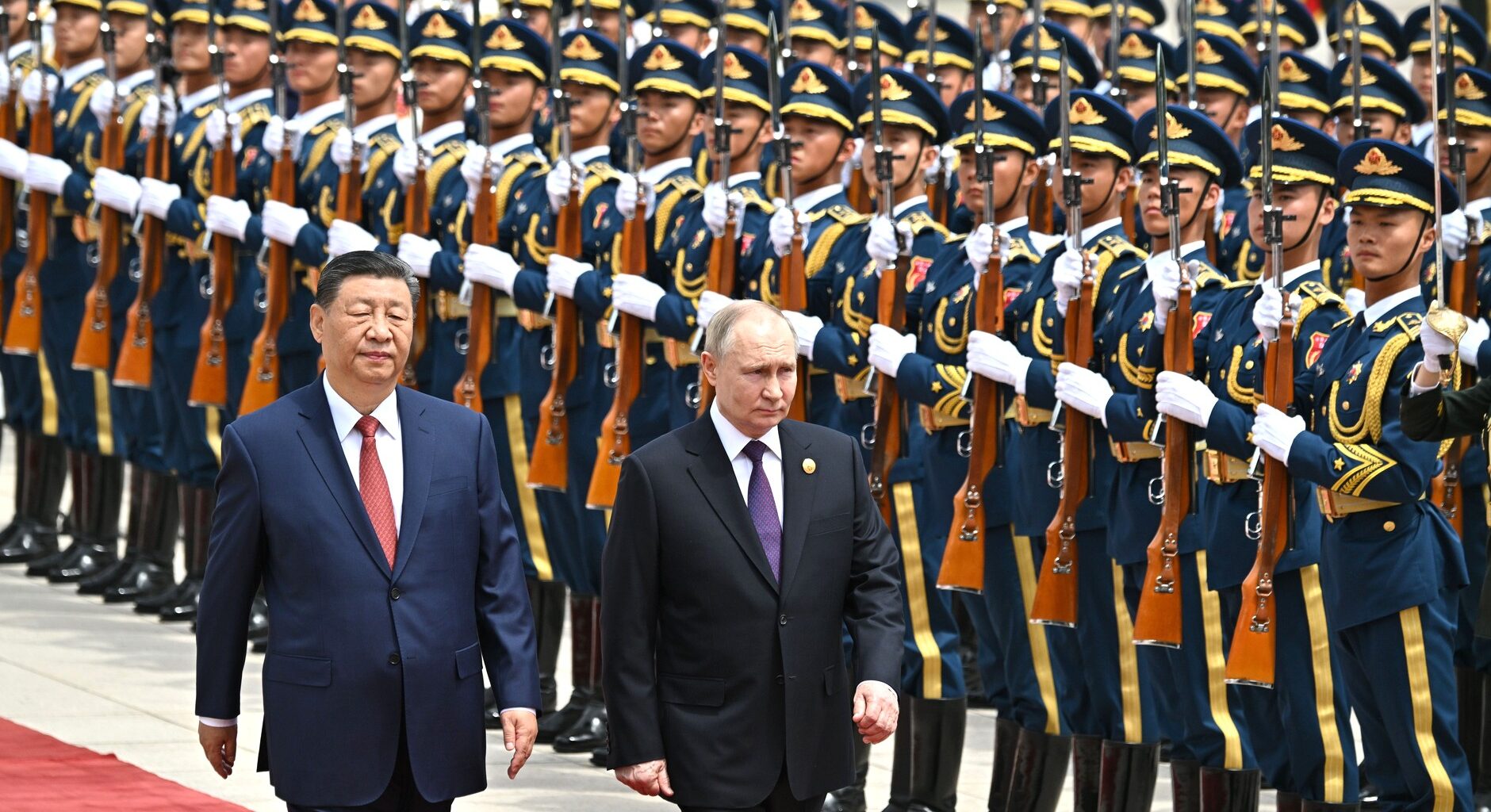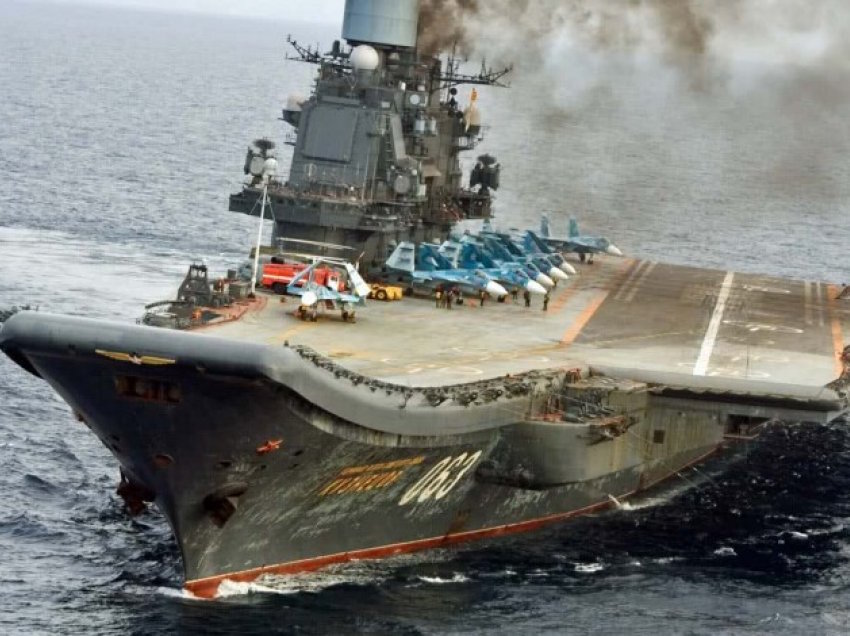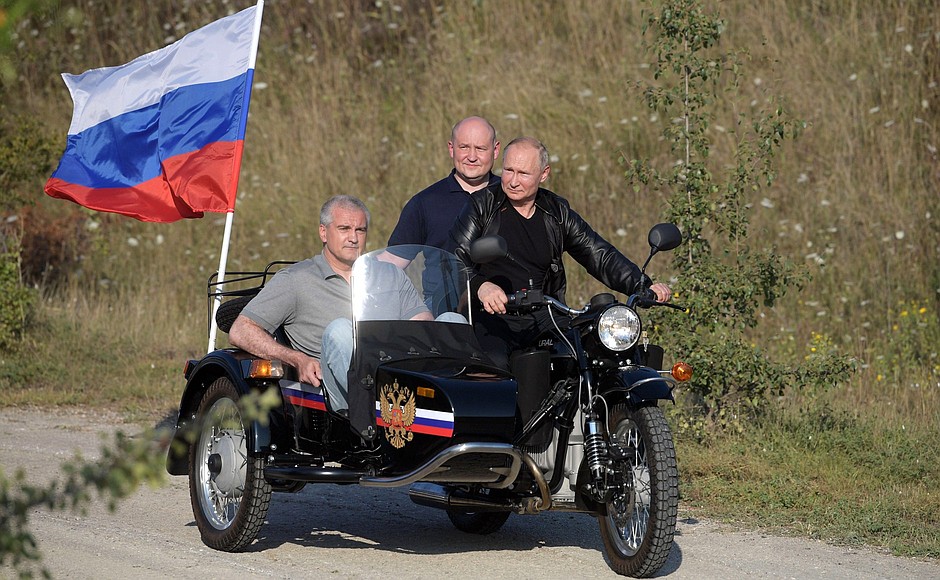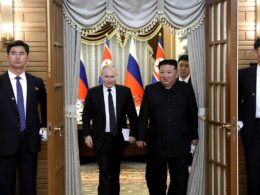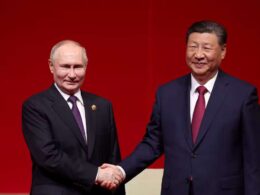The full-scale Russian invasion of Ukraine has turned into a colossal misfire. Over the past two and a half years, Russian troops have suffered a staggering toll of 640,000 personnel. The Ukrainians have destroyed two-thirds of Russia’s pre-invasion tank force and eliminated half of its Black Sea naval fleet, inflicting tens of billions in defense equipment losses.
Sanctions imposed by the international community have cranked up the cost of war for the Russian Federation. The restrictions have driven over a thousand international businesses to shut down their operations in Russia. The constraints have also cut off its key banks from SWIFT, the global financial messaging system.
The economic sanctions took a significant toll on Russia’s gross domestic product (GDP) decline as the Kremlin lost hundreds of billions of dollars due to their effects.
These losses would have been enough to end any war under normal circumstances. If any other warring state were facing losses on such a scale, it would have pulled back from the invasion. However, Russia’s war chest has been bolstered by an almost inexhaustible lifeline — support from China.
Over the past two and a half years, China has emerged as one of the key donors, providing economic aid to the increasingly isolated Russian Federation.
According to BBC estimates, trade between the two countries increased by 64% between 2021 and 2023. In 2023 alone, Russia made $129 billion from exporting goods to China.
In addition, the Kremlin has deepened its energy ties with Beijing, with Russia’s crude oil exports soaring by 24% in 2023. These interactions have helped sustain the Russian economy despite the extensive sanctions imposed by the international community.
The Chinese government has stood against the penalties imposed on the Russian Federation. Recently, the United States, along with its allies and partners, has slammed sanctions on businesses “providing products and services enabling Russia’s war effort” in Ukraine. In response, Beijing has been undermining international sanctions to hold Russia accountable for the invasion of Ukraine.
An assessment from the US Office of the Director of National Intelligence reveals the Chinese government is “pursuing a variety of economic support mechanisms for Russia that mitigate both the impact of Western sanctions and export controls.”
Lastly, China is ramping up its military support for Russia. Recent reports show that many components used in Russia’s weapons — such as drones and missiles — are manufactured or re-sold by Chinese companies.
Moreover, China is boosting the Russian military-industrial complex by supplying dual-use technologies essential for high-precision production, including advanced arms manufacturing.
In addition, the Chinese are providing protective gear to Russia, along with “assault rifles, drone shipments, and body armor.”The Russians have been putting these supplies to work on the battlefield.
These Chinese efforts enable the Russian Federation to sustain its war efforts. By strengthening Russia with economic assistance and defense equipment, China allows the Kremlin to acquire additional resources for its invasion and bolster its military capabilities.
One approach is to exert pressure on China to halt its support for Russia in the war. What can be done to achieve this?
1. Sanction Chinese companies aiding Russia's war
First, the international community can continue to put pressure on Chinese businesses providing materials and equipment used in Russia's war effort. Earlier this year, the United States rolled out new penalties targeting Chinese organizations aiding Russia in the war. The European Union followed suit by imposing sanctions on Chinese firms that conduct business with Russia, and the United Kingdom has also imposed fresh penalties on these companies.
In response, the Chinese government urged Western nations to “stop sanctioning Chinese firms over Russian ties,” but these pleas fell on deaf ears. This suggests that the measures taken by the West to penalize Chinese companies aiding Russia are having an impact.
2. Diversify trade
Second, the international community can reshape its trade relationship with China. As the world’s largest exporter, China’s economy heavily relies on global commerce. To pressure China into ceasing its support for Russia, countries worldwide should diversify their trade. The West can weaken China’s monopoly over the global market by engaging with other entities that offer inexpensive goods and services.
3. Pressure Chinese banks
Third, the international community could apply pressure on Chinese banks. The Carnegie Endowment for International Peace notes that China relies heavily on Western markets. If Chinese banks were excluded from SWIFT, Beijing would instantly fall in line, as it would not “want to lose access to Western markets,” which would severely impact its economy.
While reaching a consensus on sanctioning China may prove challenging for the international community, it is a necessary step, as Beijing is effectively undermining the impact of international sanctions on the Kremlin, prolonging its invasion of Ukraine.
To prevent further death and destruction from Russia's war, the international community must rise to the occasion and explore new ways to hold it accountable. Punishing China for its backing of Russia might just tip the scales, persuading it to sever ties with Moscow and paving the way for a rapid end to the war.
It might be a bold gamble, but it is a risk worth taking.
Editor's note. The opinions expressed in our Opinion section belong to their authors. Euromaidan Press' editorial team may or may not share them.
Submit an opinion to Euromaidan Press
Related:
- 10 honest facts about the Russo-Ukrainian war from top general Zaluzhnyi
- Five reasons the West must support Ukraine’s victory, not just survival
- Achieving peace through strength in Ukraine
- Is Russia’s changing nuclear doctrine a significant concern – or just another empty threat?
- The dark truth behind NATO’s “fear of Russian escalation”

